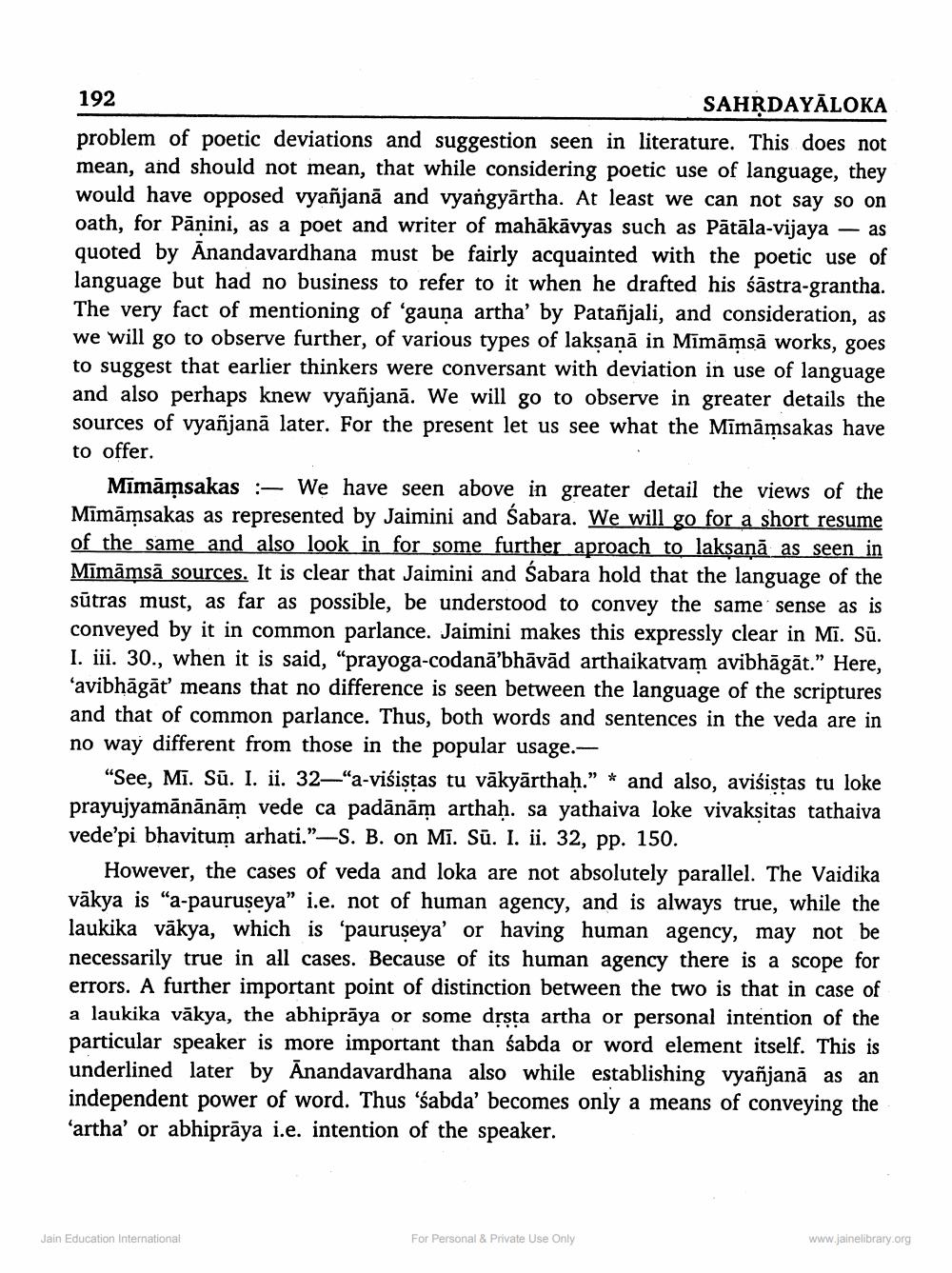________________
192
SAHṚDAYALOKA
as
problem of poetic deviations and suggestion seen in literature. This does not mean, and should not mean, that while considering poetic use of language, they would have opposed vyañjana and vyangyārtha. At least we can not say so on oath, for Pāṇini, as a poet and writer of mahākāvyas such as Pātāla-vijaya quoted by Anandavardhana must be fairly acquainted with the poetic use of language but had no business to refer to it when he drafted his sastra-grantha. The very fact of mentioning of 'gauna artha' by Patañjali, and consideration, as we will go to observe further, of various types of lakṣaṇā in Mīmāmsā works, goes to suggest that earlier thinkers were conversant with deviation in use of language and also perhaps knew vyañjana. We will go to observe in greater details the sources of vyañjanā later. For the present let us see what the Mīmāmsakas have to offer.
Mīmāmsakas - We have seen above in greater detail the views of the Mīmāmsakas as represented by Jaimini and Sabara. We will go for a short resume of the same and also look in for some further aproach to lakṣaṇā as seen in Mīmāmsā sources. It is clear that Jaimini and Śabara hold that the language of the sūtras must, as far as possible, be understood to convey the same sense as is conveyed by it in common parlance. Jaimini makes this expressly clear in Mi. Sū. I. iii. 30., when it is said, "prayoga-codana'bhāvād arthaikatvam avibhāgāt." Here, 'avibhāgāt' means that no difference is seen between the language of the scriptures and that of common parlance. Thus, both words and sentences in the veda are in no way different from those in the popular usage.
"See, Mi. Sū. I. ii. 32-"a-viśistas tu vākyārthaḥ." * and also, aviśistas tu loke prayujyamānānām vede ca padānām arthaḥ. sa yathaiva loke vivakṣitas tathaiva vede'pi bhavitum arhati."-S. B. on Mĩ. Sū. I. ii. 32, pp. 150.
However, the cases of veda and loka are not absolutely parallel. The Vaidika vākya is "a-pauruşeya" i.e. not of human agency, and is always true, while the laukika vākya, which is 'pauruşeya' or having human agency, may not be necessarily true in all cases. Because of its human agency there is a scope for errors. A further important point of distinction between the two is that in case of a laukika vākya, the abhipraya or some dṛṣṭa artha or personal intention of the particular speaker is more important than sabda or word element itself. This is underlined later by Anandavardhana also while establishing vyañjanā as an independent power of word. Thus 'sabda' becomes only a means of conveying the 'artha' or abhipraya i.e. intention of the speaker.
Jain Education International
For Personal & Private Use Only
www.jainelibrary.org




